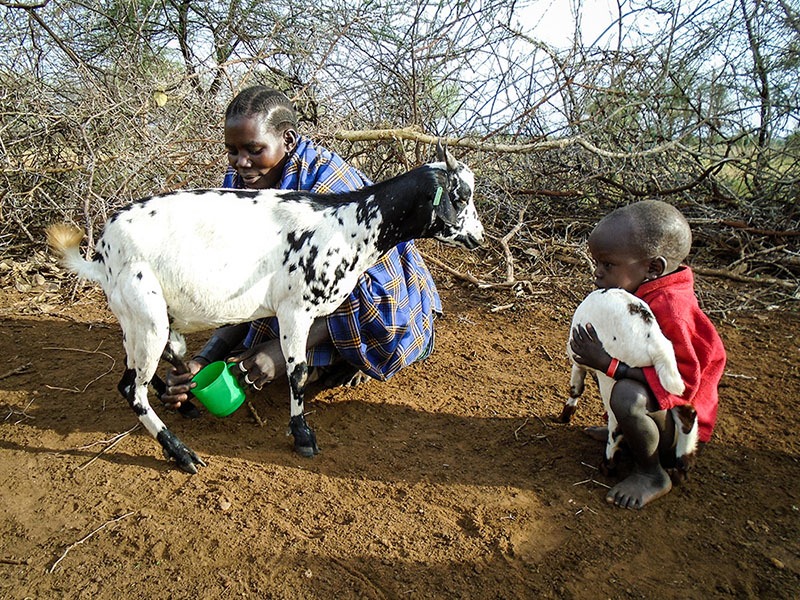
Reducing Food Insecurity for Vulnerable Ugandans
[awesome-gallery id=1789]
RELATED NEWS
Summary
The Resiliency through Wealth, Agriculture, and Nutrition (RWANU) project was designed to reduce food insecurity among vulnerable people in South Karamoja, Uganda. RWANU means “future” in NgaKarimojong. This five-year, Development Food Aid Program was funded by USAID’s Office of Food for Peace and targeted 16 subcounties in the districts of Amudat, Moroto, Napak, and Nakapiripirit.
Objectives
- Improve access to food for men and women
- Reduce malnutrition in pregnant and lactating women and children under five
Activities and Approaches
- Interventions were tailored based on whether beneficiaries lived in the agricultural green belt, agropastoralist, or pastoralist livelihood zones
- Increased access to agro-ecologically appropriate seed varieties and planting materials
- Supported the production of low-risk, high return commodities such as honey
- Increased livestock ownership and management among women’s groups
- Built the capacity of farmer groups and small producer organizations through training in technical skills, savings mobilization, basic business skills, and marketing
- Prevented malnutrition during the first 1,000 days of life through a package of curative and preventative health care, behavior change activities
- Improved consumption of micro- and macronutrients, and conditional food rations for pregnant and lactating women and children under two
- Promoted a variety of nutrition and health messages in partnership with the Ugandan Ministry of Health and community based structures such as health centers, village health teams, outreach services, and mother care groups
- Promoted gender equity by including both men and women in project activities, facilitating women’s participation without overburdening them, and ensuring that both men and women engage in remunerative production for the market
- Applied a climate-smart approach to program implementation through supporting existing regional early warning systems and introducing innovative natural resource management technologies
Achieved Results
- Reached 35,139 vulnerable households with beneficiaries participating in at least one of the program’s services
- Supported the formation of 650 farmer or producer groups, 40 honey groups, 46 horticulture groups, 188 livestock groups, 580 savings groups; groups received training in applying improved technologies around improved crop cultivation, post-harvest handling, beekeeping, horticulture, and goat husbandry rearing and have applied the new technologies or management practices
- 279 savings groups were formed, comprised of 1,254 savings group members
- 198 mother care groups were formed
- 16,488 individuals received training in nutrition and child health
Funder: USAID/Food for Peace


